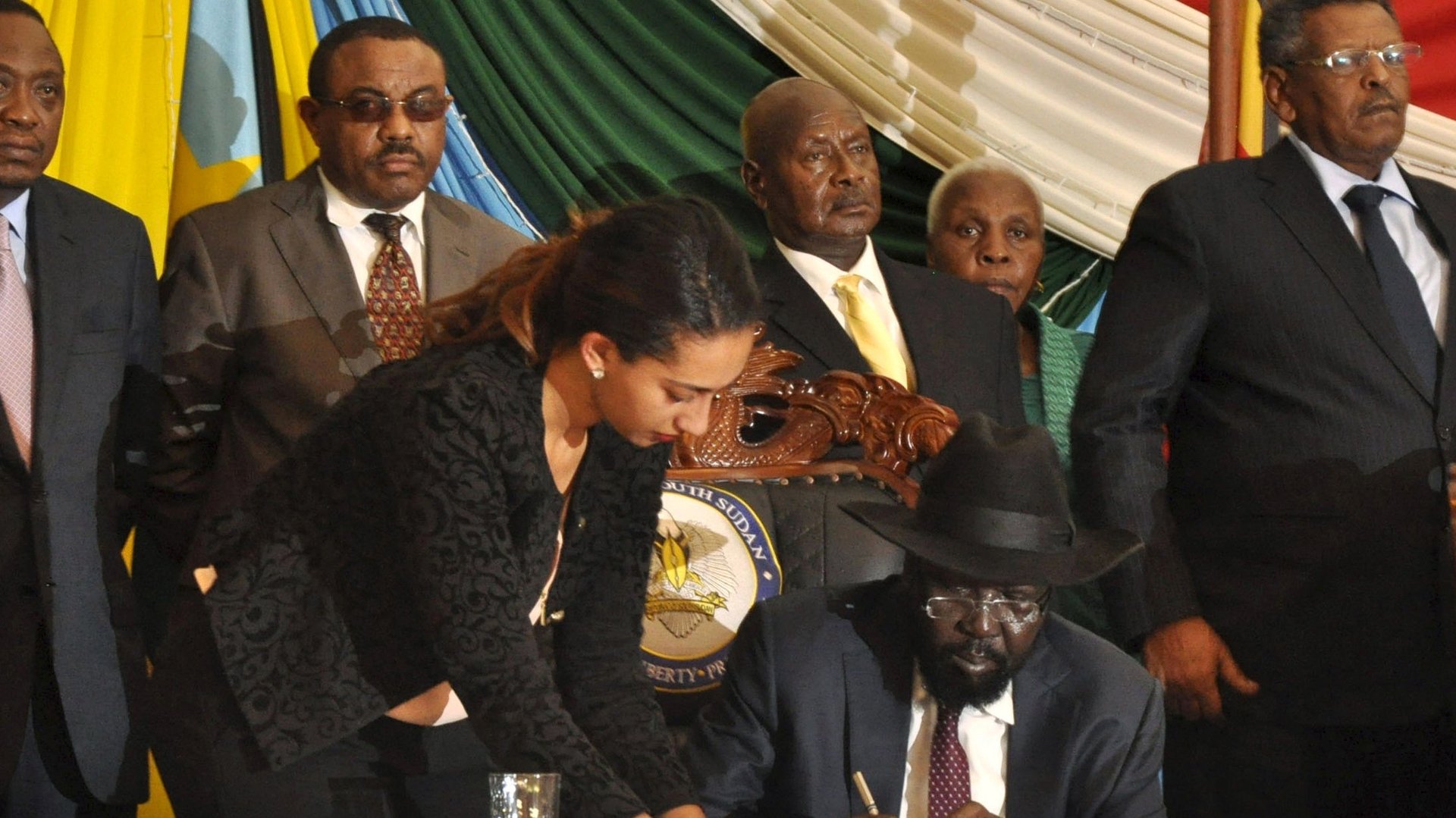South Sudan’s president has finally signed a peace deal—but still has reservations
Salva Kiir, president of the world’s newest country, South Sudan, has finally signed the peace agreement to end the conflict with rebel forces.


Salva Kiir, president of the world’s newest country, South Sudan, has finally signed the peace agreement to end the conflict with rebel forces.
Kiir’s signing of the peace deal with the rebel forces comes after he initially refused to sign the deal last week Monday (Aug 17) in Addis Ababa, citing the need to consult widely before signing the deal, as well as his uneasiness over a clause requiring his government to demilitarize in the capital city, Juba.
Since then, president Salva Kiir, has been under pressure to sign the deal from the United Nations, the US—who threatened sanctions against the country—as well as the African Union.
The conflict in South Sudan began over a political tussle between president Kirr and his former deputy, Riek Machar. In December 2013, Kiir claimed that a group of soldiers associated with the former deputy-president, Riek Machar, tried to stage a coup. The conflict then slid into an ethnic battle (paywall) between the Dinka people–the country’s largest group, which Kiir comes from, and the Nuer people, the second largest ethnic group, to which Machar belongs. Machar became leader of South Sudan’s rebel forces, opposing Kiir’s rule.
Since the start of the conflict, the United Nations (UN) claims over 2.2 million people have been displaced, and thousands killed, according to the Council for Foreign Relations.
The peace deal obliges a ceasefire from both parties within 72 hours of the signing of the agreement. It also sets out the process of the establishment of a transitional national government of unity (pdf, pg. 5) that will be tasked with holding elections to establish a democratically elected government.
France24 reports that Kiir mentioned that he had reservations with the peace deal, shortly after he signed the document.
Below are tweets from Catherine Byaruhanga, a reporter for the BBC, on Kiir’s hesitant signing of the peace deal.
According to France24, Not only was Kiir unhappy with the demand to demilitarize the capital city, Juba, as well as aspects of the power sharing, including having to consult with the first vice president, which will likely be Riek Machar, on policy.